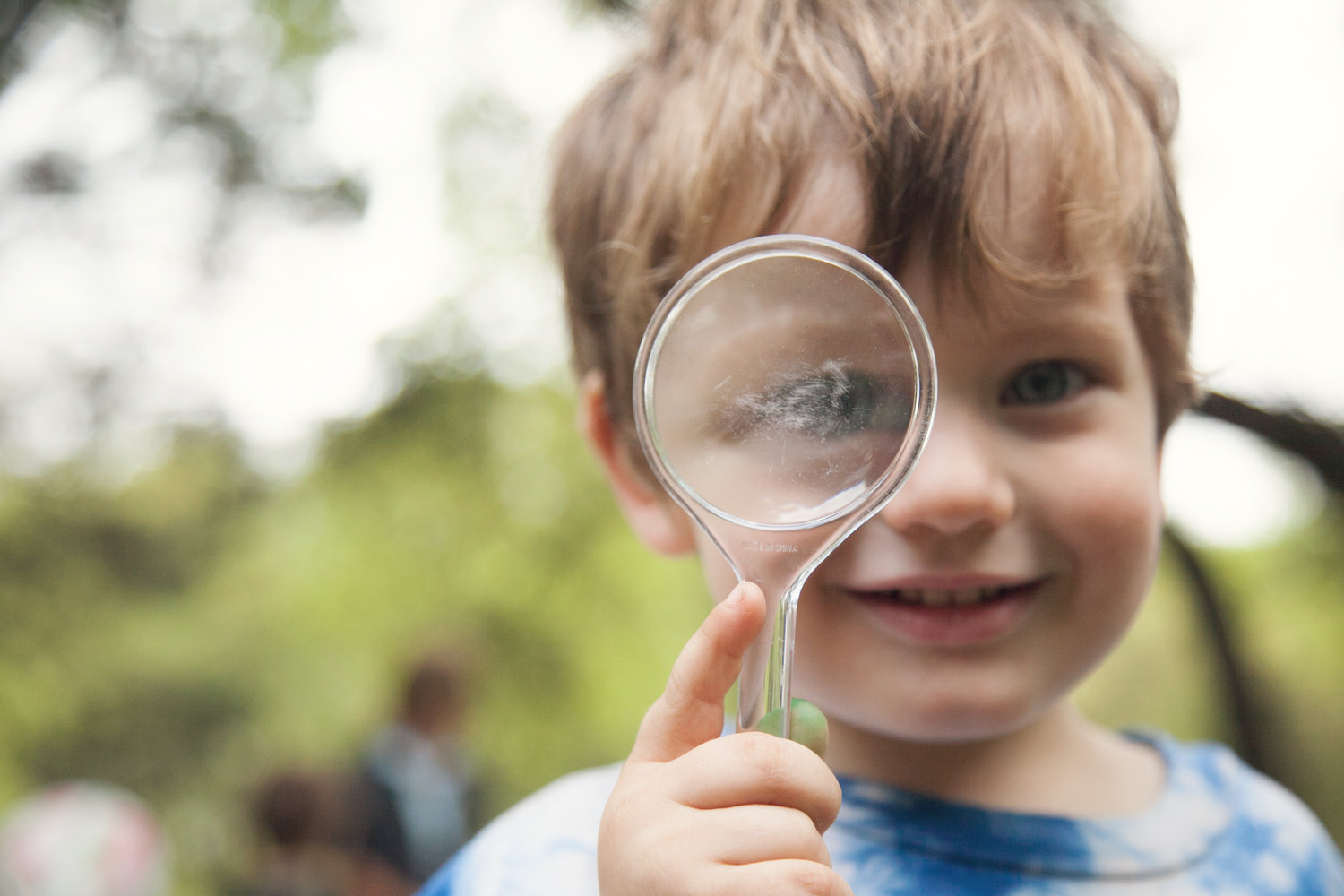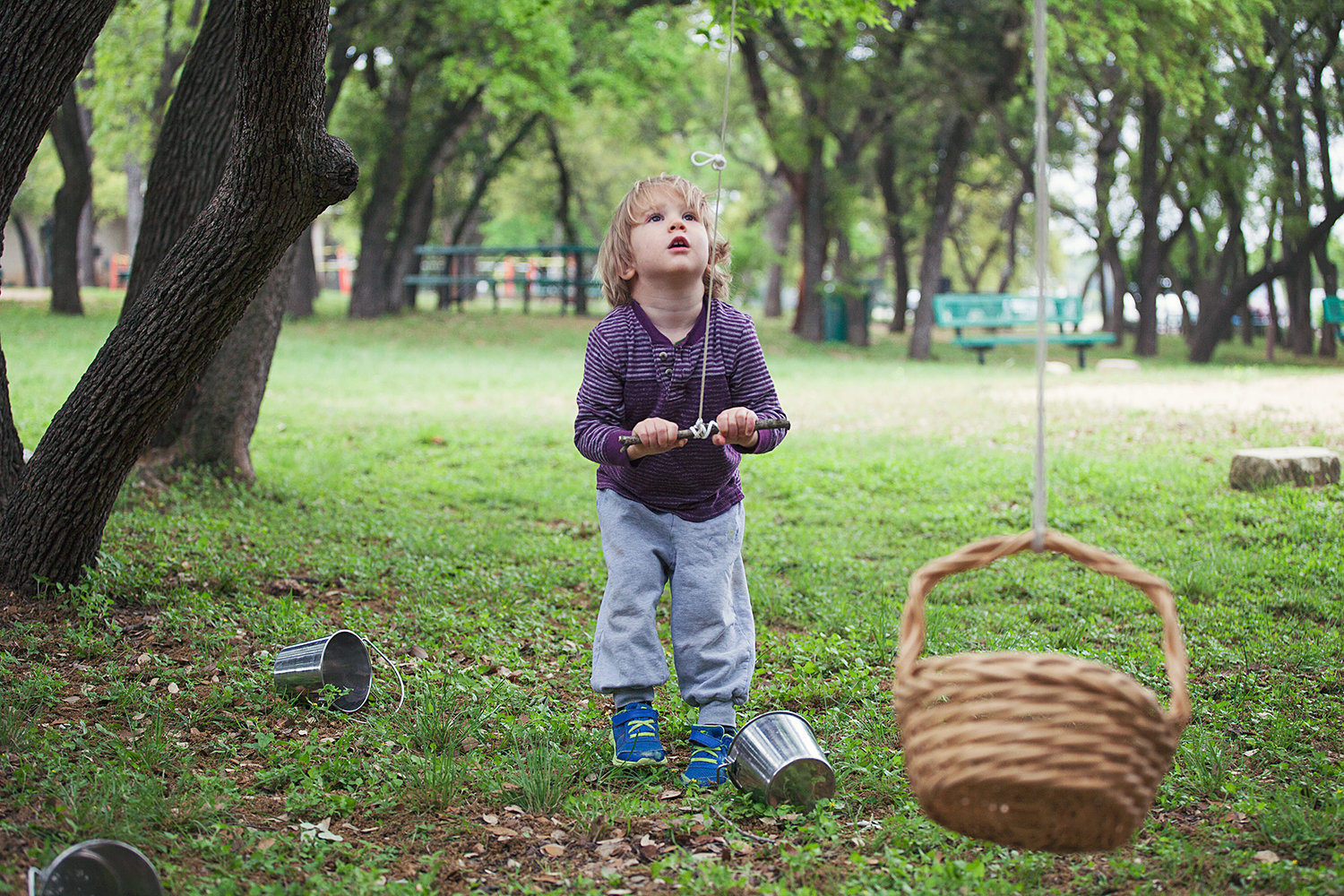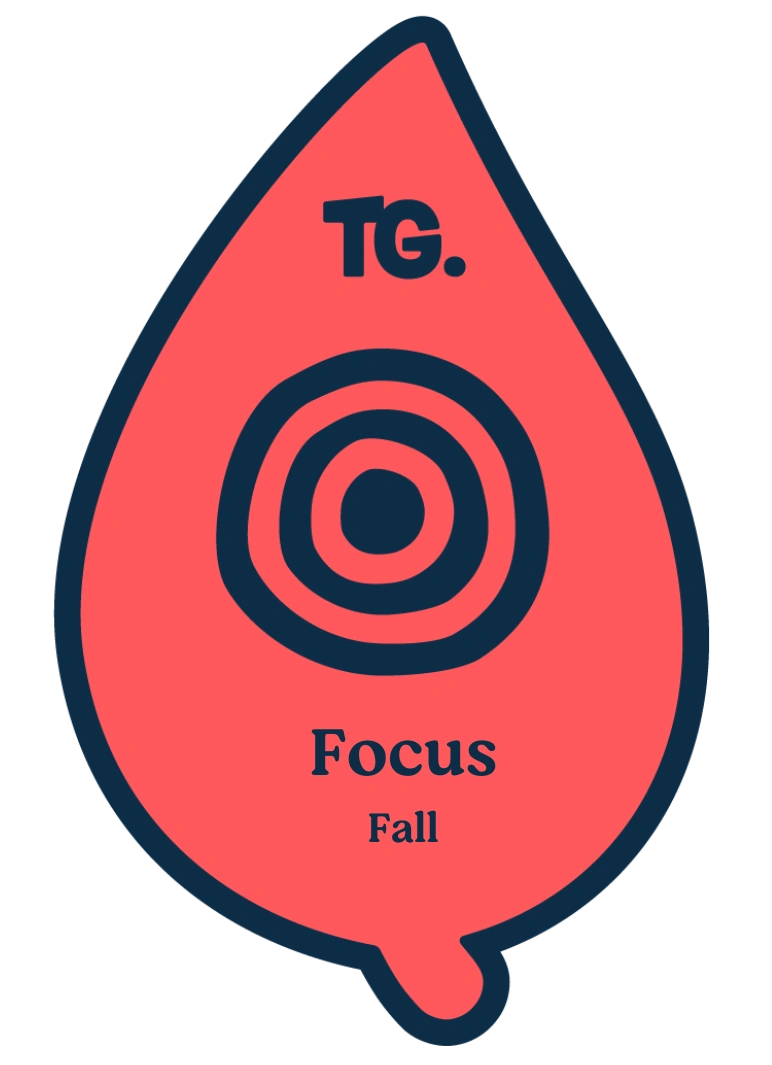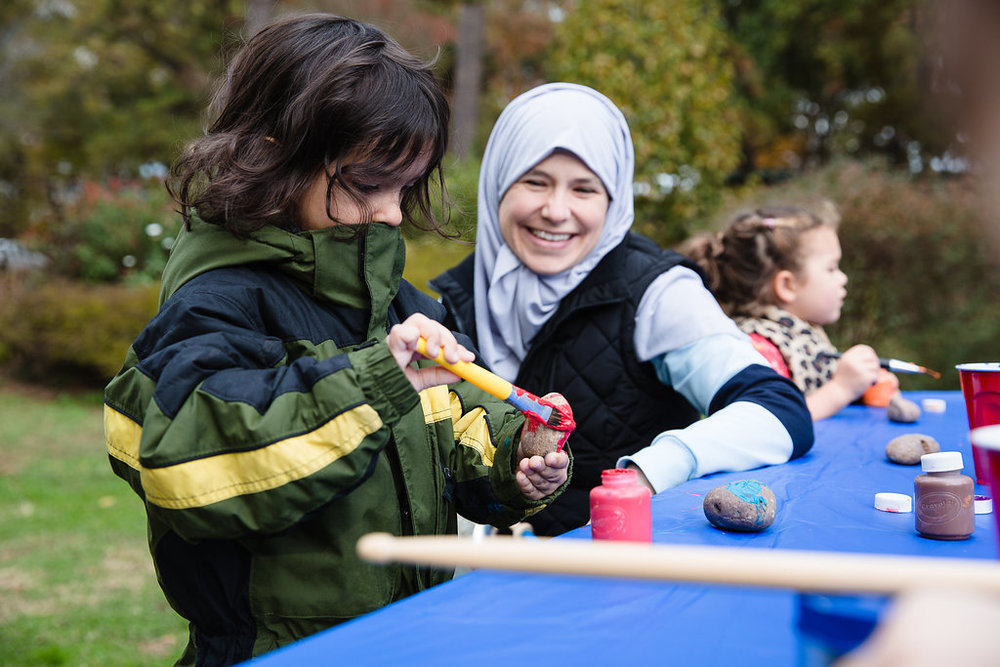When you have solved the problem of controlling the attention of the child, you have solved the entire problem of its education. —Maria Montessori
One afternoon on a Brooklyn playground, my normally active, nearly 3-year-old Maeve was coming off of a dreadful cold, sitting uncharacteristically sedentary in the sandbox. In contrast, a similarly-aged little guy was bringing loads of spirit to his play.
Wearing his fireman costume, he hopped in and out of the sandbox, alternating between sand play and orbiting the premises. Every so often, he’d stop to make a “psssht” sound and aim his pretend hose at various structures, then he’d be back on his rounds.
I was so taken by how engaged he was in so many things — moving his body, dumping water and sand, and pretending to fight fire — that I nearly ignored Maeve to marvel in all of the work he was doing. My flow broke when his mother leaned over and said, “How do you get her to be so focused? I wish he could pick something and stay with it. He has no attention span.”
She went on to share how hard it was to get him to follow directions, sit quietly and stay with tasks, and how she worried that he’d never be ready for school.
I remember thinking, “Wow, how can we see the same child in such different ways? How can such active engagement appear as lack of focus?” Careful to do everything in my power to take even a hint of judgement out of my voice, I tried to share how curious I had become about how young brains develop and how focus develops at early ages. I asked her if she had read the book I was reading — Mind in the Making by Ellen Galinsky — and shared a bit about it.
I’m not sure I made a dent in her thinking, but that moment really changed mine.
Focus
Focus and self control are critical, foundational skills. Really, they represent a symphony of skills we need to direct, shift and sustain our attention. They are the building blocks we need to form a larger set of executive functions that enable us to manage our attention, emotions, and behavior. Without the ability to direct and shift our attention, we can’t effectively take in and process information, collaborate, reflect, evaluate our options and act in service of goals. And this couldn’t be more true in our world that has become increasingly distracting.
"The more time I’ve spent interviewing and filming the best researchers on early learning, the more I’ve come to the conclusion that focus and self control are central to the other essential life skills… Put simply, if we want to achieve our goals amid everything else that is going on, we have to learn to be focused and we have to learn to have self control." — Ellen Galinsky, Mind in the Making
What does it mean to learn these skills?
Focus is so often mistaken for the ability to sit still. But it shouldn’t be, because learning to control your own attention, emotions, and behavior is an active, messy process — just like all good learning. On that Brooklyn afternoon, our fireman friend was actively working on these skills.
A young child’s brain is primed to rapidly form new connections, driving her to experience as much as possible. A preschooler’s brain is full of the overproduced connections of infancy. It’s lacking the organization our adult brains enjoy, but full of possibility and the drive to test different connections.
By the time children are in elementary school, they have made massive strides in controlling their impulses, identifying interests and sustaining attention. But they’re still missing years of experiences that help them develop and integrate all of these skills.
The more experimentation, experience and active engagement our children enjoy, the more creative, flexible and, yes, focused their brains will become. Their brains are not optimized to sit still, to always stay calm or to easily comply with directions on the first try. Kids need to move in and out of play, to discover their interests, to experience dysregulation in order to learn how to regulate, and to learn for themselves when and how to direct and shift their focus.
Supporting kids in developing focus and self control
The good news is that it’s so much easier than we think to support kids in developing focus and self control.
First, think long term. Executive function skills and the parts of the brain that drive them to start to develop in infancy, but they do not solidify until early adulthood. We have plenty of time on this one.
Next, eyes on the right goal. The goal is not to have a child who sits quietly and stays on task in response to our direction. (Your child may elect to sit still and play quietly, but that should come from within.) Really, our goal is for each child to develop the set of approaches, strategies and skills that allow him or her to direct and sustain his or her own attention, control his or her own emotions and act in a way that serves his or her own goals.
Support them. Once you start to understand how this fascinating set of skills work, and how they develop, you’ll find ways to support them at every turn. Here are 7 ways to help your child develop focus and everything you need to know about executive function skills!
Join us. Focus is one of the eight core skills that Tinkergarten is designed to help kids ages 1 to 8 develop—and we do it all through joyful, purposeful outdoor play. In fact, fall of 2024 is our Focus season!
- Follow along with our Fall/Focus curriculum by signing up for Tinkergarten Home
- Teach the Fall/Focus curriculum in your classroom, homeschool or community.
- Or find a Tinkergarten Teacher in your area to learn with!




